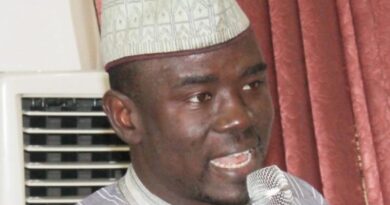Reversing The Migration Trend To Benefit Nigeria…… By Dr. Oludare Ogunlana
The Chairman of the Nigeria Senate Committee on Diaspora has rightly highlighted the urgent need to address the growing trend of Nigerians migrating abroad, commonly referred to as the “JAPA” syndrome. While the Distinguished Senator from Kogi advocates for strengthening Nigeria’s economy as a means to curb emigration, economic factors alone are not the sole drivers of migration. Migration is a complex phenomenon influenced by security, governance, and personal aspirations. A thriving economy will help, but it will not entirely stop the outflow of Nigerians seeking better opportunities elsewhere.

Beyond Economic Incentives: The Reality of Migration
If economic hardship were the only cause of migration, then the Chinese, despite having the second-largest economy in the world, would not be found in large numbers across the globe. Yet, they are among the top groups targeted for deportation in the United States. This proves that migration is not merely about economic survival; it is also about global engagement, career aspirations, education, and quality of life.
Instead of focusing solely on discouraging migration, the Nigerian government must shift its attention to reversing the “Brain Drain” phenomenon and turning it into “Brain Gain.” The OSRS stands ready to collaborate with the Nigerian Senate and the Executive branches to develop policies and initiatives that will encourage skilled Nigerians abroad to invest in and contribute to national development.
Creating a Nation Worth Returning To
Telling people not to travel is an exercise in futility. Instead, the government must create an enabling environment that encourages Diaspora Nigerians to return home, bringing with them their resources, technical expertise, and global networks. This requires:
1. Institutional Strengthening – Ensuring that government institutions function effectively, efficiently, and transparently.
2. Anti-Corruption Measures – Implementing and enforcing policies that deter corruption at all levels.
3. Security Improvements – Reducing crime rates and addressing insecurity to foster confidence in those considering returning home.
These are not just perceived challenges; they are real issues that must be tackled head-on to make Nigeria a desirable home for all Nigerians, both at home and abroad.
A Global Perspective on Migration
Powerful nations are tightening their borders against migrants from the Global South. The United Kingdom, the European Union, and the United States have implemented increasingly stringent immigration policies. Under President Trump, the U.S. government intensified measures against irregular migration, treating undocumented migrants as criminals. Deportations were executed with extreme measures—many were rounded up, shackled, and airlifted to their home countries. Some faced indefinite detention in facilities such as Guantanamo Bay.
However, history shows that migration is an enduring reality. From biblical times—when God instructed Abraham to leave his homeland and when Jesus’ family sought refuge in Egypt—to modern migration patterns, human mobility is an intrinsic part of civilization. The European conquest and settlement of the Americas further exemplify the relentless movement of people in search of better opportunities.
Rather than resisting migration, some nations have strategically leveraged it for economic and technological growth. The United States, particularly its technology sector, has benefited immensely from the H-1B visa program, which allows highly skilled foreign professionals in science, technology, engineering, and mathematics (STEM) to work in the country. Silicon Valley—the global epicenter of technological innovation—was built on the contributions of immigrants. Many of the engineers, researchers, and entrepreneurs driving advancements in artificial intelligence, cybersecurity, and software engineering came to the U.S. through H-1B visas. Without this talent pipeline, America’s leadership in technology would have been unsustainable, and Silicon Valley would have remained a mirage.
Nigeria can learn from this model by harnessing the skills and expertise of its Diaspora, encouraging knowledge transfer, and fostering an ecosystem where returning talent can thrive. Instead of merely discouraging migration, the goal should be to create an environment that attracts Nigerians back home, leveraging their global experience to drive national development.
Conclusion
Migration will never cease, regardless of the efforts of governments worldwide. The key is not to prevent migration but to create a nation that its people do not feel compelled to leave. Nigeria must work towards becoming a land of opportunity, where security, governance, and economic prospects encourage both retention and return of its citizens. Instead of resisting migration, Nigeria should harness the potential of its Diaspora, transforming “Brain Drain” into “Brain Gain” and building a country that all Black people around the world can proudly call home.




